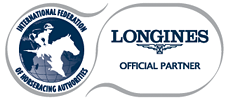Committees - Horse Welfare Committee
HORSE WELFARE COMMITTEE
IFHA Minimum Horse Welfare Guidelines
IFHA Principles of Good Practice – Horse Welfare
IFHA Transportation Welfare Guidelines
Introduction
The Executive Council established the ‘Horse Welfare Committee’ in 2010 to take care of this crucial subject.
Terms of reference
To promote best practice, harmonisation and information exchange across Racing nations in all matters as they relate to the welfare of the horse, including establishing general guidance on and standards for the care and safety of horses.
To raise awareness amongst participants and third parties of horse welfare and establish permanent contact with welfare organisations;
To work with the International Movements of Horses Committee and the Advisory Committee on Prohibited Substances and Practices
Current Membership
Chairman Mr Jamie STIER, AUS
Members
Dr Rick ARTHUR, US
Mr Simon COOPER, ISBC
Dr Alberto COSTA, ARG
Dr Grace FORBES, AUS
Dr James GIVEN, GB
Mr Andrew HARDING, HK
Mr Matt IULIANO, US
Dr Kenji KOROSUE, JPN
Dr Fumiaki MIZOBE, JPN
Dr James MIZZI, HK
Mr James OGILVY, HK
Mr Matt ORR, HK
Mr John OSBORNE, IRE
Dr Craig SUANN, IFHA (Secretary)
Dr Teresita ZAMBRUNO, ARG
Ex-offico members
Mr Andrew CHESSER, IFHA
Dr Lynn HILLYER, IGSRV, IRE
IFHA Minimum Horse Welfare Guidelines
Preamble
The IFHA publishes the International Agreement on Breeding, Racing and Wagering (IABRW) which brings together a series of articles, appendices and guidelines setting out recommended best practices for racing, breeding, stud book administration and wagering, common to all jurisdictions.
The IFHA, in its role of promoting good regulation and best practices internationally, recognises the central role played by the horse and accordingly, regards the health and welfare of racehorses, in all stages of life, to be fundamentally important to the viability and sustainability of the industry.
In all activities involving Thoroughbreds, optimising the health, safety and welfare of the horse should remain foremost in all decision-making from beginning to end of life.
The IFHA also recognises the diversity of climatic, cultural, political, legislative and other perspectives that underpin approaches to animal welfare around the world. Accordingly, it has adopted a number of broad principles of racehorse welfare for implementation by the IFHA's members into detailed local outputs to assure racehorse welfare.
In line with its terms of reference that include promoting best practice, harmonisation and information exchange across racing nations, the IFHA Horse Welfare Committee has produced this “IFHA Minimum Horse Welfare Guidelines” document as guidance for the care and welfare of horses at different times of their life. This is the 2nd edition of the document, which has been reviewed and updated to ensure that the guidelines are consistent with current knowledge and evolving contemporary values.
Racing authorities should refer to this guidance to establish accepted horse welfare practices in their jurisdiction, and to inform minimum standards of participant behaviour, and drive behavioural change where necessary.
IFHA Minimum Horse Welfare Guidelines (full document PDF)
Press Release - https://ifhaonline.org/Default.asp?section=Resources&area=0&story=1076
Panel Video -
Podcast -
IFHA Principles of Good Practice – Horse Welfare
Preamble
The International Federation of Horse Racing Authorities (IFHA) affirms the central role of the horse in racing and accordingly regards the health and welfare of racehorses, in all stages of life, to be fundamental to the long term future and viability of the sport.
In line with their terms of reference to promote best practice, harmonisation and information exchange across Racing nations, the IFHA Horse Welfare Committee has produced documents on the ‘Principles of Good Practice’ as guidance on standards for the care and safety of horses in key areas as they relate to welfare. This guidance is to raise awareness amongst participants and third parties of appropriate standards of horse welfare in racing and breeding in areas that are vital to ensure the ongoing success of racing.
These documents provide a practical means to racing authorities to ensure that welfare is properly taken into account by all people in charge of horses at the different times of their life. They are a basis on which horse welfare can be introduced into the educational courses for jockeys and trainers, and in liaison owners and breeders, and with the Veterinary profession.
Racing authorities should rely on this guidance to establish accepted horse welfare practices in their jurisdiction, and to set minimum standards of participant behaviour, including behavioural change where necessary.
Monitoring of Racing Injuries and Fatalities
Activities to Minimise Injury and Optimise Horse Welfare
Veterinary Emergency Care Procedures
Emergency Euthanasia on a Racecourse
Aftercare of Racehorses
Use of the Whip



